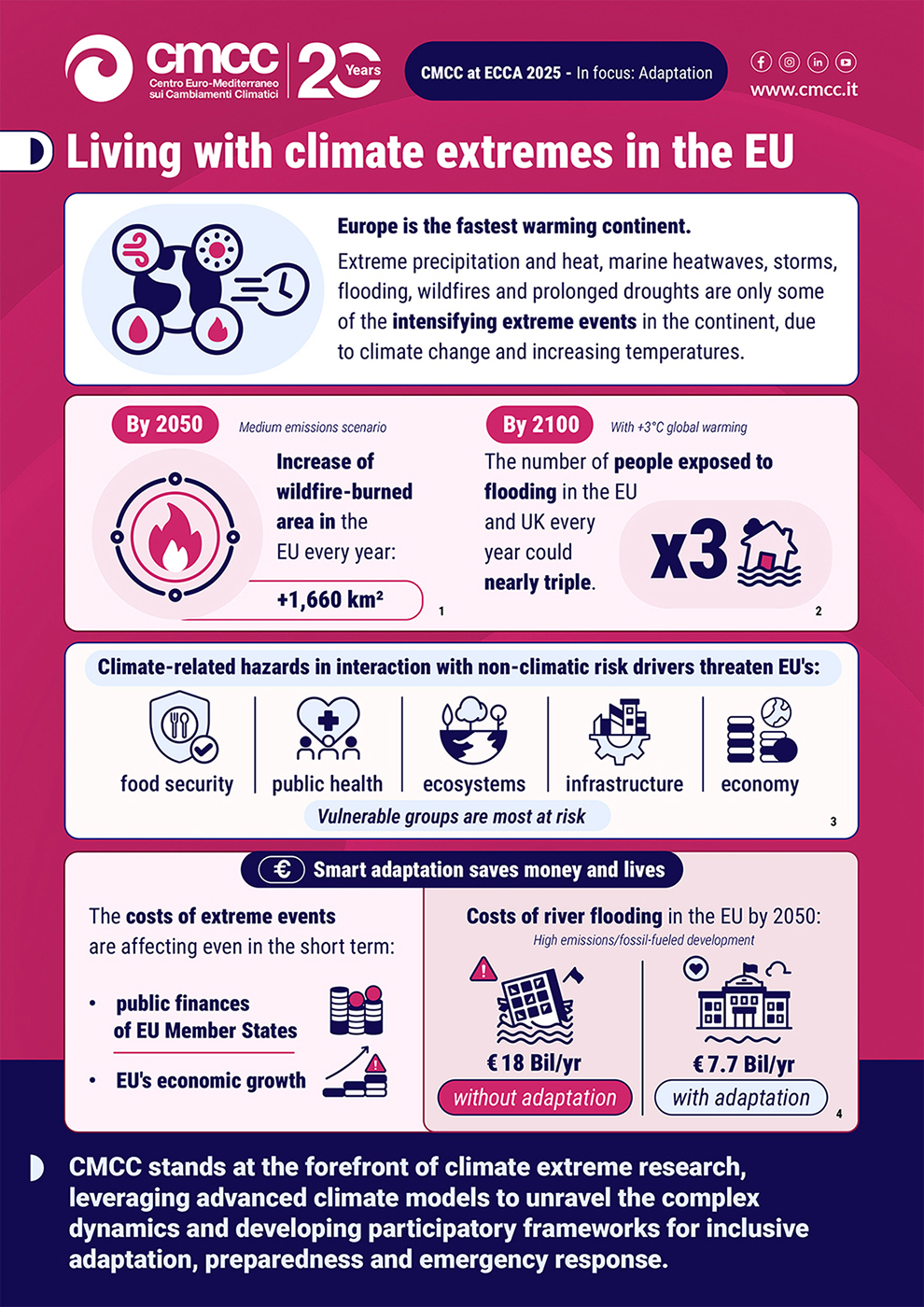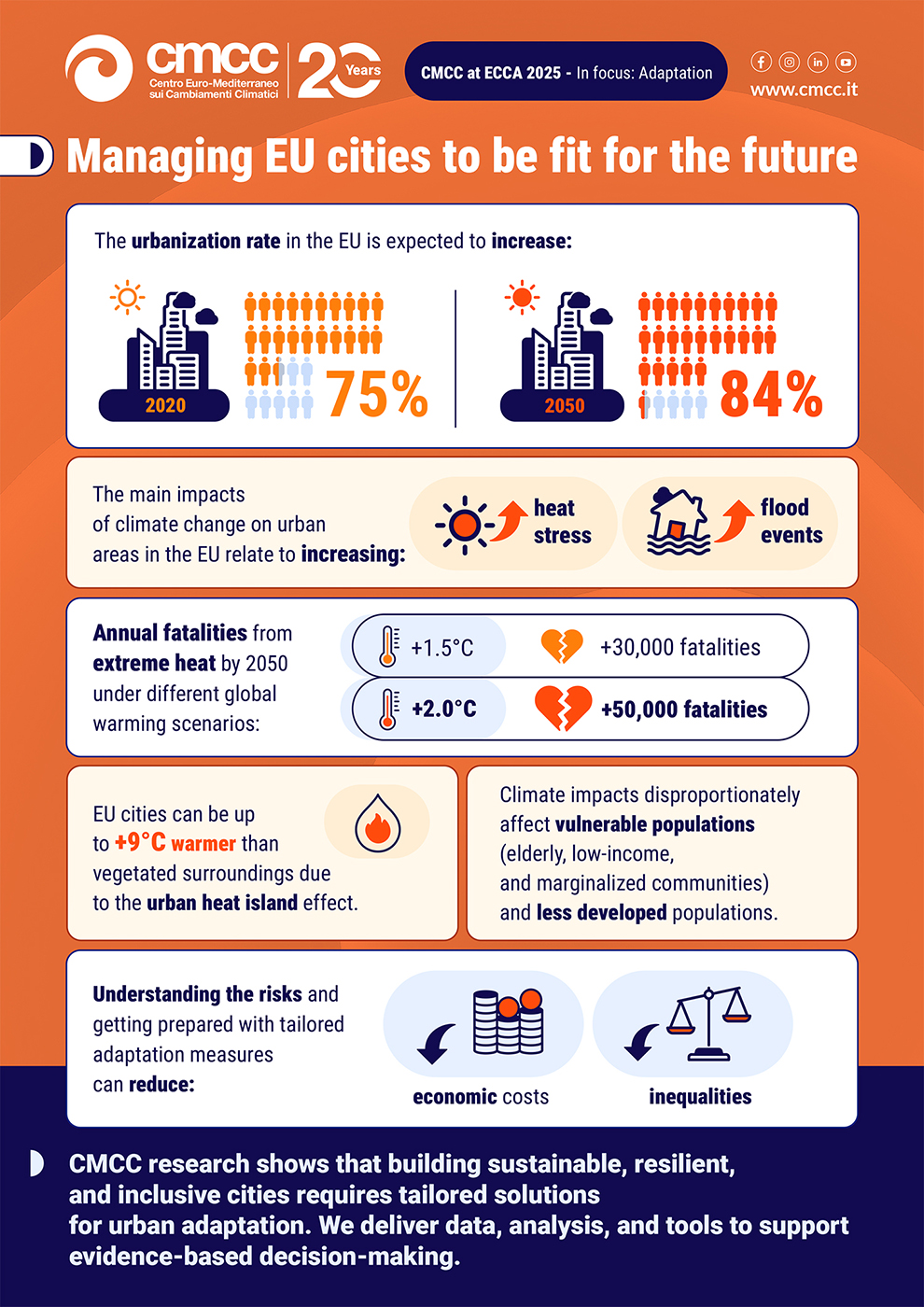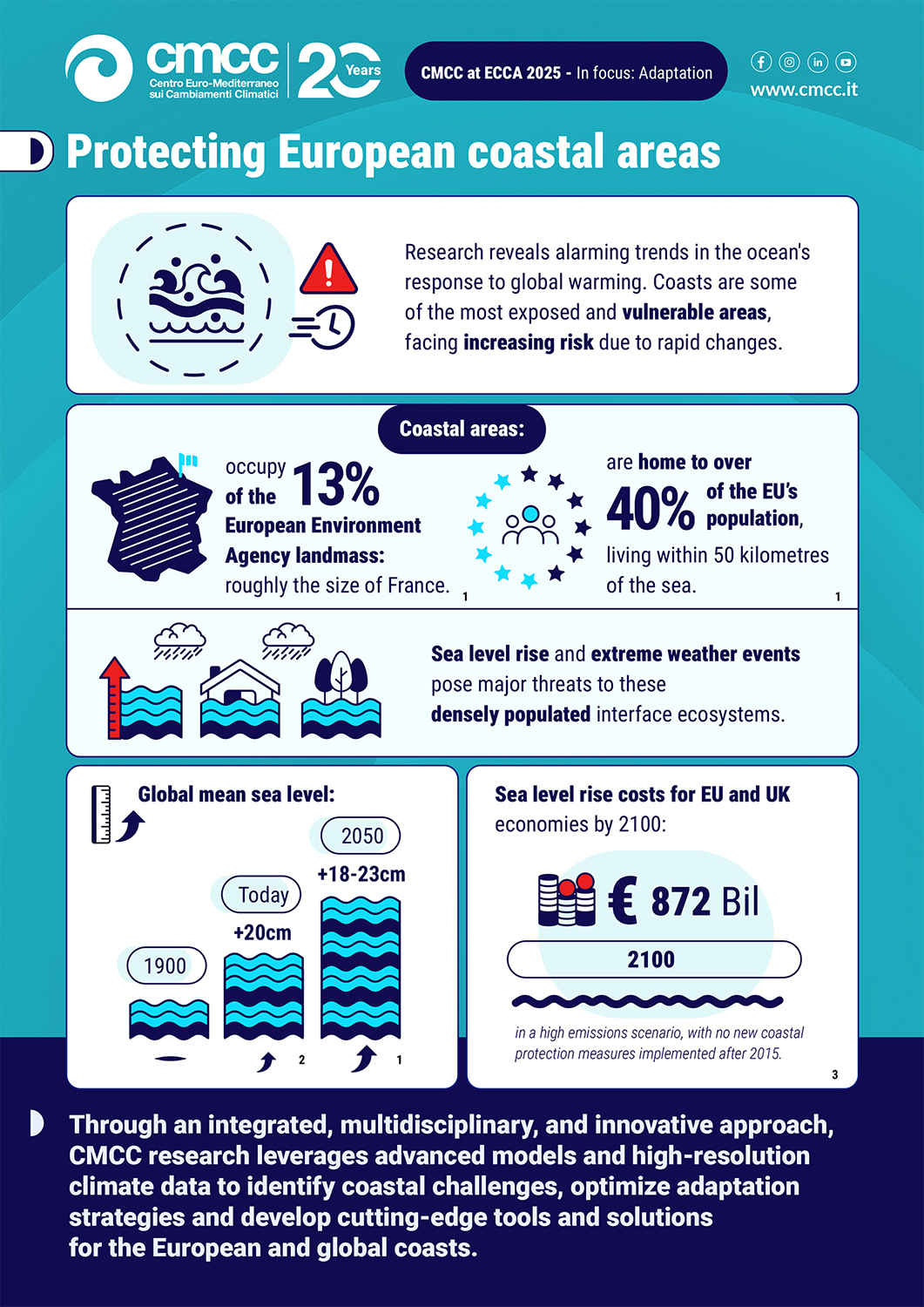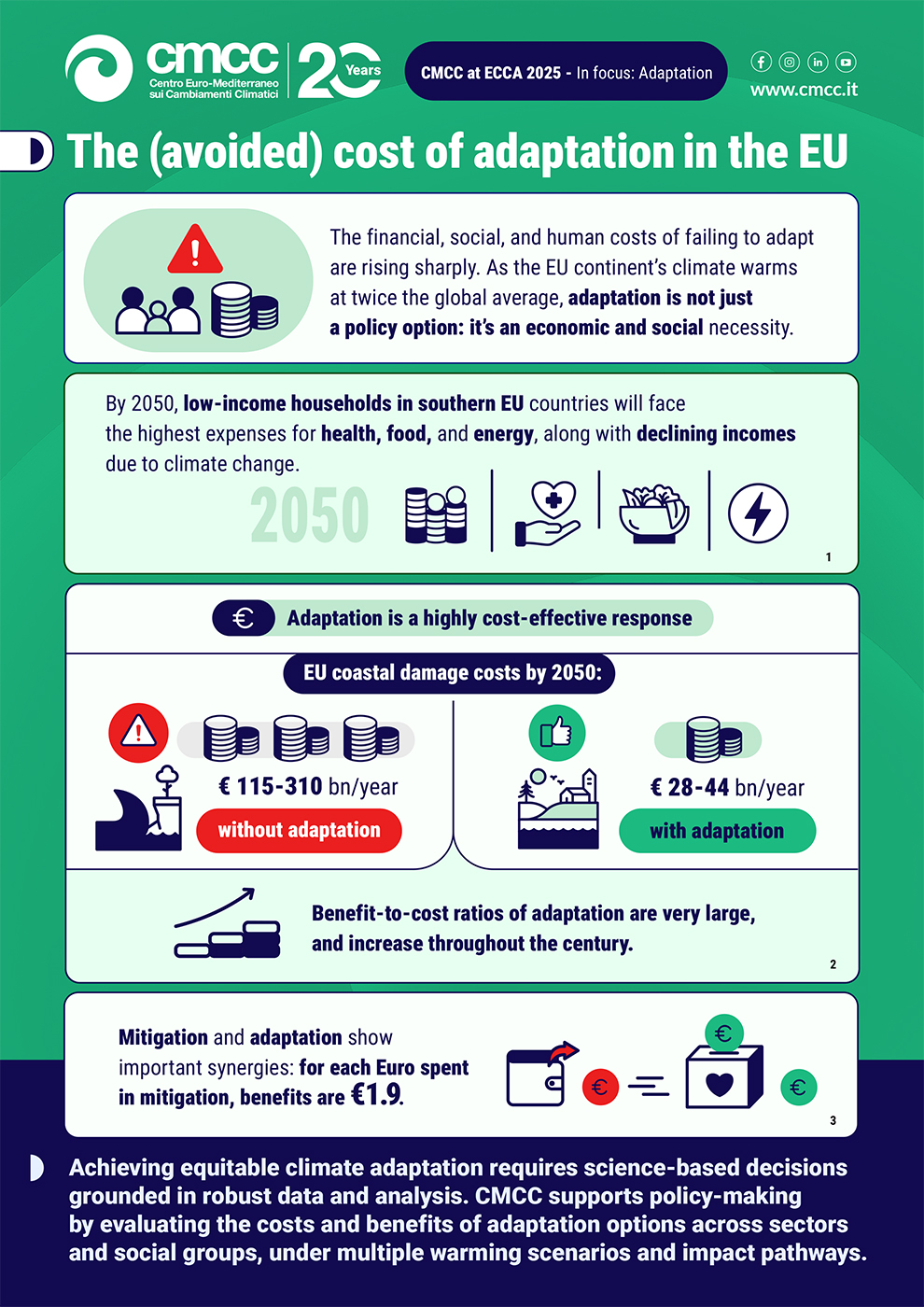The CMCC Foundation is at the forefront of adaptation science with its multiple lines of research on resilience, risk reduction and modeling of climate change impacts. From urban environments to crucial interface ecosystems, such as coastal areas, CMCC’s research addresses pressing adaptation challenges through high-resolution climate and economic modeling, co-designed adaptation strategies and ready-to-use tools and visualizations tailored for key stakeholders.
On the occasion of the European Climate Change Conference 2025 (ECCA2025)–co-organised by CMCC Foundation and JPI Climate in the framework of Horizon Europe MAGICA Project– a curated collection of infographics and briefings offers an in-depth look into current and future adaptation challenges and relevant CMCC results and findings.
Discover and download below our communication assets on climate adaptation for journalists, stakeholders and policymakers, to drive change and contribute to a resilient future.
Living with climate extremes in the EU
Europe is experiencing a new era of climate extremes, with 2024 marking the warmest year on record for the continent. The frequency, intensity, and impacts of extreme events – whether they are heatwaves, floods, droughts, or storms – are on the rise, underscoring the urgent need for robust adaptation strategies across all sectors and regions.
Managing EU cities to be fit for the future
Urbanization rates in Europe are expected to increase to 84% by 2050, compared to 75% in 2020. At the same time, climate change will lead to an increase in heat stress and flood events in urban areas across the EU. Yet cities are not just victims of climate change, they also contribute to it, with the building sector being one of the main drivers of global energy-related CO2 emissions. Which leads to the question: What is the future of European cities?
Protecting European coastal areas
Global mean sea level has risen by approximately 20 cm since 1900 – at a current rate of more than 3 millimeters per year – impacting not only marine ecosystems but also coastal communities, global economies and society. At the same time, projections for 2100 show that storm surges which were considered a once every 100-year event could now occur as frequently as every ten years, if not annually, in some parts of the world. CMCC research is not only at the forefront of identifying these risks, but also provides the tools and solutions to deal with the challenges they pose.
The (avoided) cost of adaptation in the EU
Europe is facing escalating costs from climate change, with record-breaking heatwaves, floods, droughts, and wildfires already impacting lives, livelihoods, and economies. The evidence is clear: the financial, social, and human costs of failing to adapt – or implementing the wrong adaptation policies – are rising sharply. As the continent’s climate warms at twice the global average, adaptation is not just a policy option: it is an economic and social necessity.





